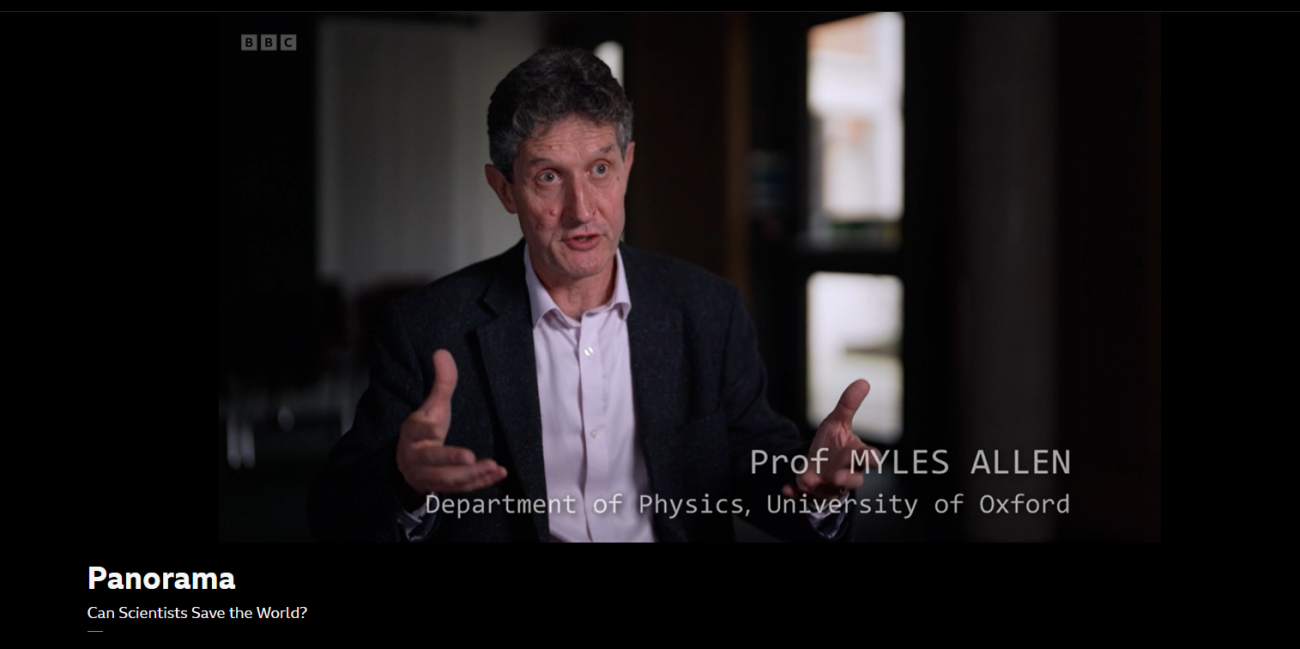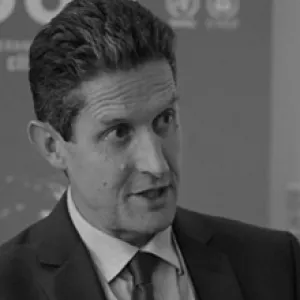Climate change needs addressing urgently the world’s scientists agree, but exactly how we do that is where their views differ. Professor Myles Allen from the Environmental Change Institute is one of the leading climate scientists to feature in a BBC documentary.

Panorama’s Can Scientists Save the World? looks at the technology which could help in the fight against climate change. They include mechanical trees that absorb carbon, machines that brighten clouds and a solar reactor that makes fuel from fresh air.
Prof Allen, who leads the Climate programme at the Environmental Change Institute, (ECI) and who is Head of Atmospheric, Oceanic and Planetary Physics at the University of Oxford gives his view on what’s needed to halt global warming and examines the options to remove CO2 and slow climate change. He said: “As the world warms, a lot of carbon stored in natural sinks like forests is actually getting released into the atmosphere.”
Calling for a renewed focus on reducing fossil fuel use and scaling up permanent CO2 disposal, Prof Allen stresses:
We could stop climate change within a generation if we just put our minds to it. If we actually put the resource that’s in the fossil fuel industry and require them to dispose responsibly of the CO2 generated by the fuels they sell.
The fossil fuel industry can afford to fix this. For what we paid for gas in 2022 in the UK, they could have captured every single molecule of CO2 that gas generated back out of the atmosphere and stuck it back under the North Sea - twice over.”
BBC journalist and Panorama reporter, Richard Bilton, said in summary:
There are reasons to have hope. Cutting carbon use is vital but the world also needs to remove what’ already there. Science created our problems, and many believe science will be part of the solution.”
The documentary coincides with a study published in Nature for which Prof Allen is lead author: Geological Net Zero and the need for disaggregated accounting for carbon sinks.
The study, coauthored by Dr Stuart Jenkins, Researcher at the ECI, among others, draws attention to rules that allow countries and companies to offset ongoing CO2 emissions from fossil fuels with CO2 absorption by forests and oceans that is happening anyway as a result of past emissions.
This means the world could appear to achieve net zero by 2050 without actually stopping global warming – or even reducing emissions at all until the late 2030s.
Instead, the authors call for a recognition of the need for 'geological net zero', that the only way of compensating for any continued production of CO2 from burning fossil fuels is to capture and dispose of it back underground, or somewhere equally permanent.
Read more about Prof Allen’s recent study.
Read the article in full in Nature: Geological Net Zero and the need for disaggregated accounting for carbon sinks

